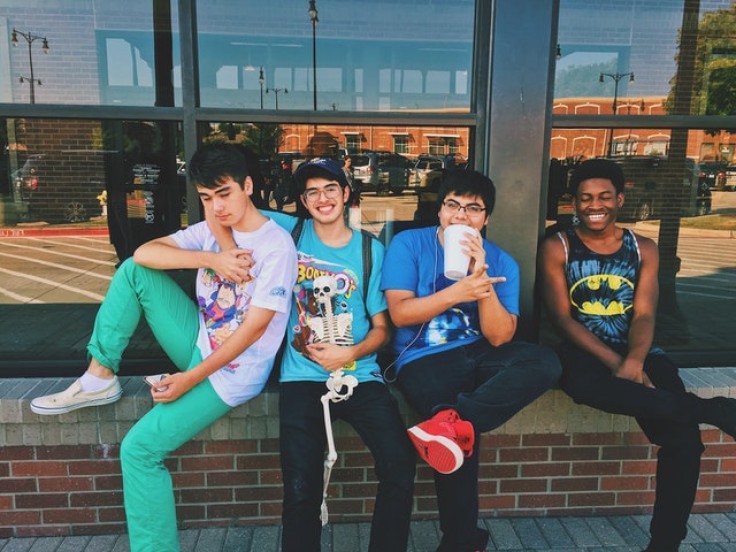
If somebody has a teenager who needs help dealing with the struggles everyday life can sometimes endure, they often look into attending an RTC (residential treatment center) for help.
There are plenty of RTC programs out there, but one thing for sure is that they are not all equal when it comes to training and the quality of care that teenagers receive.
When looking to enroll a teenager into residential treatment programs for behavior therapy, mental illness, gender identity issues, etc., one should consider the accreditations that the facility has acquired.
In order for any RTC to be considered a top-tier program, they must first acquire the necessary accreditations that will put them in that league.
Top Accreditations RTC's Need to Acquire to Be Considered Top Tier Programs
Every RTC has one of the same goals in mind, and that is to provide the best treatment possible to teenagers that have issues like substance abuse, behavioral problems, mental illnesses, etc.
However, in order to be considered one of the best programs available, the RTC must accomplish getting licensed and accredited by leading organizations.
For example, an RTC should have the following accreditations:
The Joint Commission - A nonprofit organization dedicated to finding healthcare organizations that provide high-quality and affordable care.
Cognia - A global nonprofit offering accreditation and certification to RTCs and other institutions to help enhance the level of education and professional learning.
The National Association of Therapeutic Schools and Programs (NATSAP) - This is a network of therapeutic programs to hold RTCs and other programs to a higher standard of care.
Psychology Today - This institution has an internationally renowned directory of therapeutic programs and trusted therapists. Any RTC having this accreditation is recognized worldwide as being a leader in Verified Treatment Programs.
Elevations RTC proudly holds each and every one of these accreditations and/or licensing for providing exceptional care to teenagers.
Note: More information about the Elevations RTC application and Elevations RTC address is available online.
What Do Accredited RTCs Offer Struggling Teenagers?
When a teenager is struggling in life, there can be one or more causes that lead that teen on an uncertain path. It is highly advisable to seek proper treatment from an accredited RTC.
These providers can offer treatment programs that are classified by sexual orientation or co-ed programs based on the treatments needed.
One of the biggest obstacles for families who have transgender teenagers is finding an RTC that specializes in giving them the care they need to lead a successful life.
Programs, such as the ones at Elevations RTC, work with a complex and diverse population. This means that under no circumstances would a teenager be rejected due to their sexual orientation or gender identity.
An RTC can treat several different types of diagnosis. These include but are not limited to the following:
Substance Abuse
Anxiety
Depression
Mood Disorders
ADHD
Learning Disabilities
Self Injury
Trauma History
Mental Illnesses
Identity Issues
Teenagers with one or more of the above issues often need to be treated professionally. This includes round-the-clock care in a facility designed to nurture and assist teenagers with adapting to a new way of life.
RTCs that are considered top-tier programs have all the essential training and tools to help better the lives of teenagers who struggle with various issues.
What To Expect From a Top Tier RTC
RTCs that are considered top-tier programs offer many different treatments that can help teenagers with issues so that they can adjust to everyday life.
Students typically live on a large campus with other teenagers who are participating in a similar program. This often includes attending school, recreational activities, dining, etc.
The teenagers are broken down into smaller groups based on their circumstances and can participate in various therapeutic interventions with their peers.
All students should receive proper education from accredited traditional teachers, which includes college prep courses.
The staff at RTCs generally include Psychiatric NP, PA, and full-time nurses. There are also Board Certified General and Adolescent Psychiatrists regularly available.
Top tier RTCs also offer the following:
Team Building Activities
Multiple Clubs
Physical Education
Community Service
Behavioral Therapy
They also offer some type of off-campus activities weekly, such as hiking, skiing, camping, snowboarding, water sports, mountain biking, etc.
Recreational activity is a huge part of most RTC programs. It helps teenagers release built-up energy and keeps the body in a healthy condition.
Once a teenager has completed a top tier program at an RTC, they leave with life skills that can benefit them for the rest of their lives. Plus, many RTCs assist with employment opportunities once a teenager is capable of taking on more responsibility.
How To Know When a Teenager Needs To Be Enrolled in An RTC
Suppose a teen's life has become unmanageable, and they are acting out in ways due to their mental health, behavioral issues, and or addictions. In that case, they need professional help, and a top-tier RTC is the best course of action.
These programs are designed to give teenagers the immediate change they need in their environment. They need to be able to breathe and take a hard reset on the path they are pursuing in life.
In most cases, a properly accredited top-tier program offered by an RTC is the best solution for any teenager that is struggling to find their way in life.